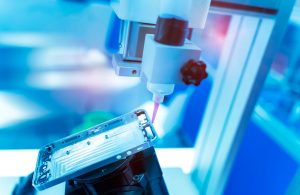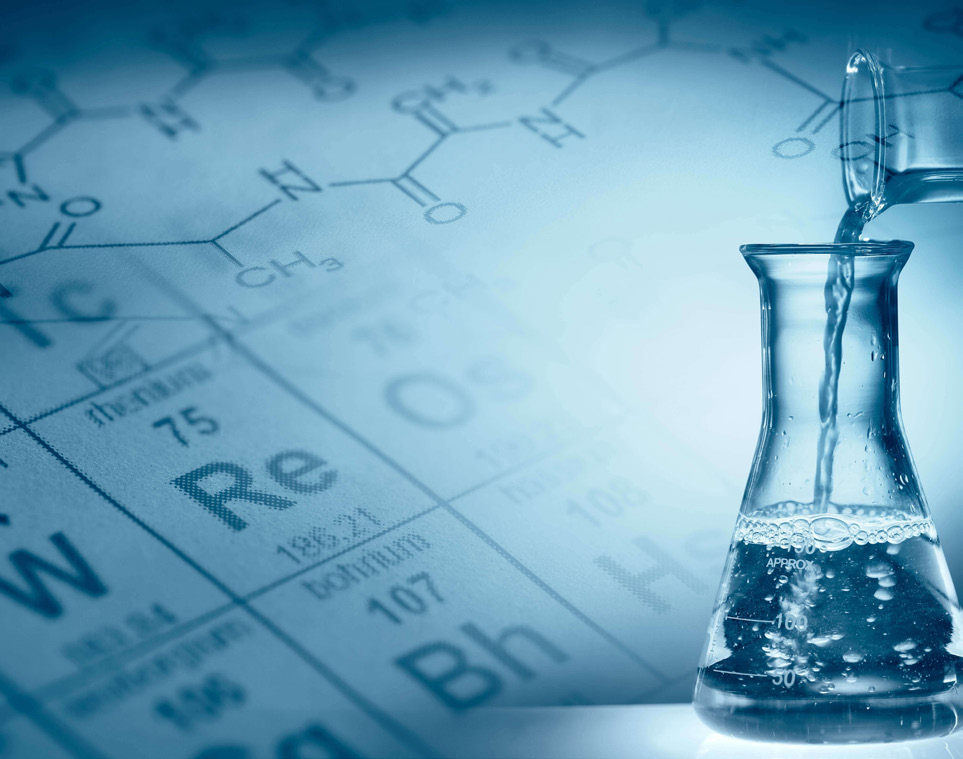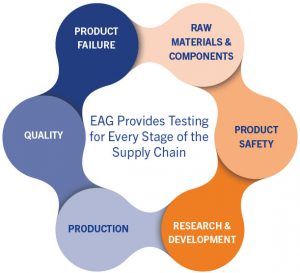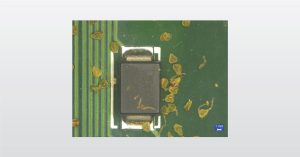
Curing Issues with Silicone Adhesive
A client requested assistance to investigate a recurrent issue with the curing failure of a silicone adhesive joint between metal components.
Home » Meeting Material Purity Requirements with GDMS
Unknown or unwanted chemical impurities in materials can be problematic for both users as well as manufacturers. They can disrupt supply chain, impact performance and reliability, cause delays and increase costs. Knowing this, manufacturers seek out higher purity materials to eliminate these potential issues. On the other hand, intentionally added elements into materials can introduce energy levels previously not assessable by electrons, photons, phonons, atoms, and molecules, thus creating vast opportunities for discovering new phenomena for properly tailoring. Glow Discharge Mass Spectrometry (GDMS) is a powerful full survey analysis tool for chemical purity evaluations of advanced materials.
GDMS is a high-resolution mass spectrometric technique, which is based on glow discharge atomization/ionization source combined with sector-field mass analyzer. It is a very sensitive and robust direct sampling analytical tool for monitoring elemental compositions

and impurities in materials down to sub-ppm mass fraction levels. It can scan up to 75 elements in all solid inorganic materials with very high sensitivity across the entire periodic table.
Full survey analysis by GDMS can provide critical data in industries like aerospace, semiconductor, telecommunications, automotive, lighting/LEDs, optics, and thermal spray coatings. Ideal uses include purity evaluations of advanced materials (i.e. metals, alloys, electronic materials, etc.) and chemical analysis up to 99.99999% (7N), depth specific trace and ultra-trace distribution measurements, traceability or identifications of unknowns from limited amount of samples and chemical characterization of particulate materials, surface contaminants and engineering coatings.

At EAG, our scientists are skilled and knowledgeable in serving very broad industry sectors requiring high purity materials. EAG uses multi-disciplinary analytical expertise (including GDMS) to provide support for the full product life cycle including product innovation and improvement, investigation and troubleshooting, quality assurance, regulatory compliance, manufacturing and supply chain support and consultation and litigation.
In working with many clients EAG scientists developed its own proprietary test protocols, hardware accessories and software packages for data processing to provide analytical services. There are several important features to this proprietary technology including (1) traceability (2) calculations linked to ASTM protocols for established ASTM methods (3) a built-in mass interference calculator and (4) an advanced data reduction software. With over 25 instruments of different generations and source configurations, EAG scientists wanted to minimize differing data variables so they created a platform that could support all GDMS models to ensure a high level of data consistency to clients. The software has many features that are not available in commercial equivalents. Combined, these different tools provide a platform to ensure uniformity of analysis across all of EAG’s sites by ensuring that methods are tied to ASTM, ISO, Nadcap or Established Work Instructions.
If you need to identify materials in your production line, if you have an unknown sample and need it identified or if you want to do an overall test for purity then EAG is the right partner to help you get the job done. We are a global leader in materials testing services with a broad range of instruments and a highly experienced staff. Contact us today to learn more about what we can offer with GDMS analysis and how we can be your trusted partner during your product life cycle.

A client requested assistance to investigate a recurrent issue with the curing failure of a silicone adhesive joint between metal components.

EAG Laboratories provides clients with answers to these questions and more with testing support for every stage of the supply chain.

In this webinar we introduce Environmental chamber clean analysis that identifies contamination that can ruin your qualifications.

The Versatility and Usefulness of Aerogels Thermal resistance and its complement, thermal conductance, are fundamental concepts in thermodynamics, thermal engineering, and heat transfer. They describe the ability of a material
To enable certain features and improve your experience with us, this site stores cookies on your computer. Please click Continue to provide your authorization and permanently remove this message.
To find out more, please see our privacy policy.